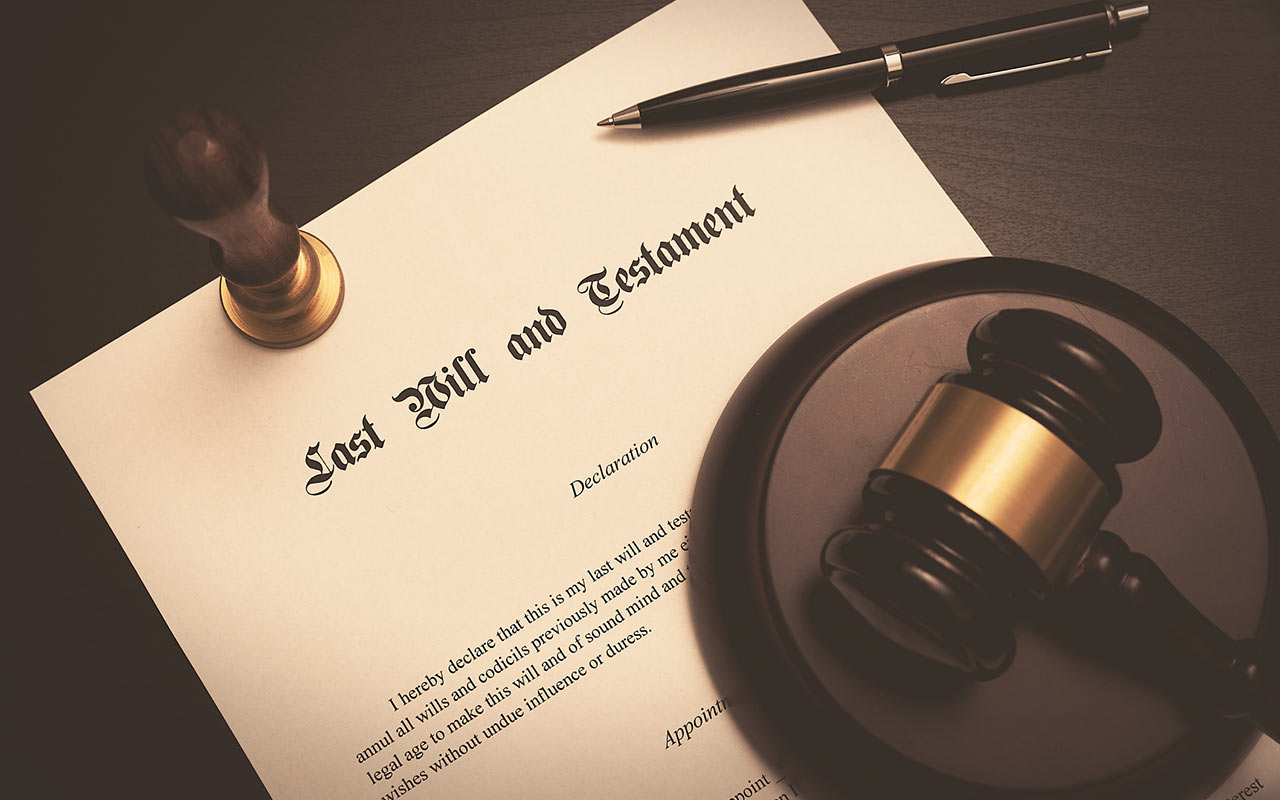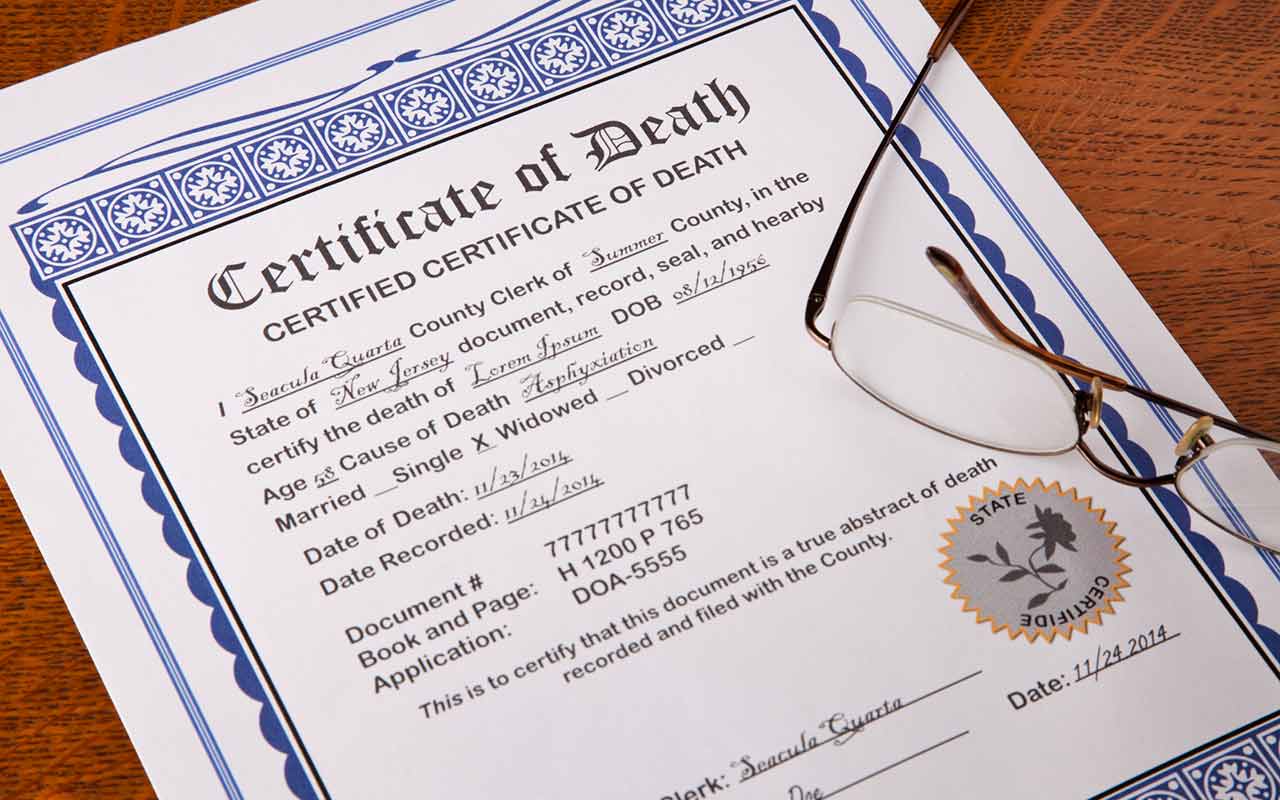A Step-by-Step Guide to Being an Estate Executor
Whether you’re planning ahead for your own heirs or have been asked to serve as an executor of an estate for someone else, it pays to understand what the role requires.

Profit and prosper with the best of Kiplinger's advice on investing, taxes, retirement, personal finance and much more. Delivered daily. Enter your email in the box and click Sign Me Up.
You are now subscribed
Your newsletter sign-up was successful
Want to add more newsletters?

Delivered daily
Kiplinger Today
Profit and prosper with the best of Kiplinger's advice on investing, taxes, retirement, personal finance and much more delivered daily. Smart money moves start here.

Sent five days a week
Kiplinger A Step Ahead
Get practical help to make better financial decisions in your everyday life, from spending to savings on top deals.

Delivered daily
Kiplinger Closing Bell
Get today's biggest financial and investing headlines delivered to your inbox every day the U.S. stock market is open.

Sent twice a week
Kiplinger Adviser Intel
Financial pros across the country share best practices and fresh tactics to preserve and grow your wealth.

Delivered weekly
Kiplinger Tax Tips
Trim your federal and state tax bills with practical tax-planning and tax-cutting strategies.

Sent twice a week
Kiplinger Retirement Tips
Your twice-a-week guide to planning and enjoying a financially secure and richly rewarding retirement

Sent bimonthly.
Kiplinger Adviser Angle
Insights for advisers, wealth managers and other financial professionals.

Sent twice a week
Kiplinger Investing Weekly
Your twice-a-week roundup of promising stocks, funds, companies and industries you should consider, ones you should avoid, and why.

Sent weekly for six weeks
Kiplinger Invest for Retirement
Your step-by-step six-part series on how to invest for retirement, from devising a successful strategy to exactly which investments to choose.
Whether you’re planning ahead for your own heirs or have been asked to serve as executor for someone else, it pays to understand what the role requires. The executor shoulders the fiduciary responsibility to keep track of all assets and debts for the deceased person and executes the instructions in the will for disposing the assets. Claims against the estate could become the executor’s personal responsibility if funds aren’t handled correctly, says Hugh Drake, a partner with the Brown Hay & Stephens law firm in Springfield, Ill. The job can be a steep learning curve, especially if you know little about the deceased person’s possessions, the scope of the estate or where important papers were kept. Here’s a step-by-step guide of what the executor will need to do.

An Executor of an Estate Must Get on the Same Page
The first step for executors is to read the will and understand the testator’s intentions, which aren’t always clear. When Kiril Alexandrov, 55, became executor of his mother’s estate, he and his sister had different ideas about what their mother wished to do with their childhood home in Pennsylvania. “It’s just sitting there, useless. We pay taxes on it and never go there,” he says. “Things like that should’ve been addressed when my mom was alive.” When preparing an estate, consider a letter of direction to guide the executor. “Give the executor a sense of where my heart was when I did this,” Drake advises.

An Executor of a Will Must Meet with the Family
Sometimes the heirs have little or no idea of what’s in the will. It’s left to the executor and the estate’s attorney to share that information. This job can be made easier if the testator discusses the will with the immediate family before passing away so that there are no surprises. David G. Hoffman, an attorney in Fairfax, Va., arranges annual conferences with his clients and their children to ensure they understand the will, the estate and what to expect as executors and heirs. This helps avoid fistfights over a family heirloom. “If you have an argumentative family, that is going to cause you more problems than all the assets in the world,” says Hoffman, who wrote The Essential Executor’s Handbook (Career Press, $17).

An Executor of a Will Should Take Inventory
The best executors are organized, comfortable with details and numbers, and methodical in what can be a long process, starting with understanding what’s in the estate. “Your job is to pass things from that person to whoever inherits it. You need to know what’s there,” says Mary Randolph, author of The Executor’s Guide (Nolo, $40). Ideally, the testator should have listed for you all accounts, assets, debts and liabilities in one place, with passwords for online accounts and digital assets, as well as the names and contact information of professional advisers like lawyers and accountants. In practice, that doesn’t always happen, and the executor has to piece all this information together, including tax records, insurance policies and any safe deposit boxes or forgotten accounts from two decades ago.

An Estate Executor Should Change the Locks
After the testator dies, don’t rush to distribute assets immediately. Everyone, including the executor, needs time to grieve and honor the decedent with a funeral, but you should secure household possessions so that nobody walks off with a valuable wine collection or the family Bible. “A lot of times it’s the things that are of sentimental interest that generate the most conflict,” says Drake. “For the executor to have the ability to change the locks on the house and inventory everything is great.”

An Estate Executor Should Order Copies of the Death Certificate
You’ll need copies of the death certificate to close and transfer the decedent’s accounts, says Alexandra Owens, 58, a New York City-based association executive, who served as executor for a work colleague. Be sure to request multiple copies.

An Executor of a Will Should Consider Professional Help
You will need to decide whether you should hire an attorney to file legal and tax forms or if you can manage most tasks on your own. The decision likely hinges on the complexity of the estate, the state the decedent lived in and how easily you can manage the disposal of the assets. Some states provide a simplified probate procedure for smaller estates. Only assets held solely by the decedent go into probate. You don’t include life insurance policies or retirement accounts that named a beneficiary, or any real estate held with a living spouse or other individual. “You can get lots of help at a bank or from a lawyer or government websites,” Randolph says. You can also get an attorney’s advice without turning over everything, and the estate will pay the attorney’s fees.

An Estate Executor Should Create a Calendar of Deadlines
The bulk of the executor’s job involves spreadsheets, forms, court dates, phone calls and email. Once you file with the court and receive authority to act on behalf of the estate, you can create a calendar of deadlines for notifying creditors and heirs, filing forms and completing taxes. Again, state rules will hold sway. Illinois, for example, requires executors to pause the probate process for six months to make sure potential creditors have ample time to file claims on an estate, Drake says. As the executor, you should consider creating one centralized system to keep track of accounts, tasks and the distribution of assets.


An Executor of an Estate Will Distribute Assets
Notify all heirs of the process and timing of probate, and keep them updated. At the end of the claims period, you determine which creditors need to be paid and in what order. Then heirs receive assets as designated in the will. Unless the decedent has a valuable collection or antiques, you should be able to divide up household assets without an assessment. Families can agree on a method, such as taking turns choosing items. “It was so much work,” Alexandrov says of being an executor. “The most positive part is it brings you close to the person that has expired. I gained an incredible amount of respect for my mom, for all her accomplishments.”
Profit and prosper with the best of Kiplinger's advice on investing, taxes, retirement, personal finance and much more. Delivered daily. Enter your email in the box and click Sign Me Up.
Katherine Reynolds Lewis is an award-winning journalist, speaker and author of The Good News About Bad Behavior: Why Kids Are Less Disciplined Than Ever – And What to Do About It. Her work has appeared in The Atlantic, Fortune, Medium, Mother Jones, The New York Times, Parents, Slate, USA Today, The Washington Post and Working Mother, among others. She's been an EWA Education Reporting Fellow, Fund for Investigative Journalism fellow and Logan Nonfiction Fellow at the Carey Institute for Global Good. Residencies include the Virginia Center for the Creative Arts and Ragdale. A Harvard physics graduate, Katherine previously worked as a national correspondent for Newhouse and Bloomberg News, covering everything from financial and media policy to the White House.
-
 Dow Adds 1,206 Points to Top 50,000: Stock Market Today
Dow Adds 1,206 Points to Top 50,000: Stock Market TodayThe S&P 500 and Nasdaq also had strong finishes to a volatile week, with beaten-down tech stocks outperforming.
-
 Ask the Tax Editor: Federal Income Tax Deductions
Ask the Tax Editor: Federal Income Tax DeductionsAsk the Editor In this week's Ask the Editor Q&A, Joy Taylor answers questions on federal income tax deductions
-
 States With No-Fault Car Insurance Laws (and How No-Fault Car Insurance Works)
States With No-Fault Car Insurance Laws (and How No-Fault Car Insurance Works)A breakdown of the confusing rules around no-fault car insurance in every state where it exists.
-
 States That Tax Social Security Benefits in 2026
States That Tax Social Security Benefits in 2026Retirement Tax Not all retirees who live in states that tax Social Security benefits have to pay state income taxes. Will your benefits be taxed?
-
 What to Do With Your Tax Refund: 6 Ways to Bring Growth
What to Do With Your Tax Refund: 6 Ways to Bring GrowthUse your 2024 tax refund to boost short-term or long-term financial goals by putting it in one of these six places.
-
 What Does Medicare Not Cover? Eight Things You Should Know
What Does Medicare Not Cover? Eight Things You Should KnowMedicare Part A and Part B leave gaps in your healthcare coverage. But Medicare Advantage has problems, too.
-
 12 Great Places to Retire in the Midwest
12 Great Places to Retire in the MidwestPlaces to live Here are our retirement picks in the 12 midwestern states.
-
 15 Cheapest Small Towns to Live In
15 Cheapest Small Towns to Live InThe cheapest small towns might not be for everyone, but their charms can make them the best places to live for plenty of folks.
-
 15 Reasons You'll Regret an RV in Retirement
15 Reasons You'll Regret an RV in RetirementMaking Your Money Last Here's why you might regret an RV in retirement. RV-savvy retirees talk about the downsides of spending retirement in a motorhome, travel trailer, fifth wheel, or other recreational vehicle.
-
 The 24 Cheapest Places To Retire in the US
The 24 Cheapest Places To Retire in the USWhen you're trying to balance a fixed income with an enjoyable retirement, the cost of living is a crucial factor to consider. Is your city the best?
-
 The Six Best Places to Retire in New England
The Six Best Places to Retire in New Englandplaces to live Thinking about a move to New England for retirement? Here are the best places to land for quality of life, affordability and other criteria.
